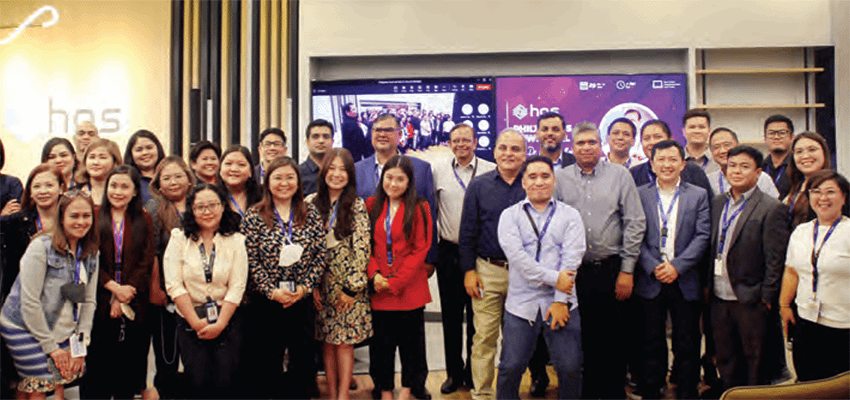Inclusion is the way to happiness

In the context of the Philippines, it is the sense of “All people are equal and wanting to help each other” that seems to make them a happy group. How can India put a stop to trust deficits and build a truly inclusive and collaborative world and sustainable happiness in society
Stepping out of a town hall meeting with a bunch of BPO employees in Manila, Philippines, I had three options in rush hour to walk from the high-rise office building to my hotel, the Grand Hyatt in the spanking new BGC in Manila. I could do a fifteen-minute walk, try to hail a taxi, or call for a Uber or Grab ride. Just then, a young man on a small scooter rode up wearing a blue JoyRide tee shirt and invited me to be his pillion rider. “You can just pay by app”, he said, and while the fare was less than two US dollars, I thoroughly enjoyed my joy ride to my hotel and the English song my driver was humming right through. Speaking to my host, the very energetic Pushkar Misra, at dinner that evening, I wondered “I see smiling happy faces everywhere. What is the magic of the Philippines?”
Pushkar, who is the Asia Pacific President and CEO of Hinduja Global Solutions, and a resident of Manila for over a decade after studying at IIT Kanpur and IIM Ahmedabad said, “Filipinos are a very joyful people. They see both the poverty around them and the opportunities in companies like ours and many other firms who are employing hundreds of thousands of young people. Are happy when their Government does something and not cynical when things go wrong and are looking forward to a better lifestyle than their parents and a great future for their future generations. The willingness to help each other, be very warm and hospitable to every visitor and the pride they have in their country keeps them generally happy.” And I wondered “Can we say the same for our own country? Why does one see so much anger and distrust in so many people even while they should be proud of being part of the fastest-growing economy in the world?”
One problem that we have and which is shared by many other nations in the developed and developing world is the tendency to indulge in “othering”. I had written a few years ago in this column that we are living through times where “othering” or labelling some parts of humanity as “not like ourselves” has become a way of life. We are all guilty in thought and action of disliking or distrusting those who we believe could cause us harm or in some cases, need to be pitied and financially supported by us. While in some parts of the Western world, othering has led to decades of racial inequity, in India we are seeing inequities amongst social classes, castes, communities, and even gender, which have led to deep fissures in society.
Even words like charity and inclusion are limiting, in the sense that they start from an assumed position of the superiority of the person who wants to be good to the other. We need to free ourselves from this explicit or unarticulated tendency towards othering, which is so embedded in our thinking and language that it becomes a limitation to what we can accomplish in a social context. An offer of inclusion as a favour, which starts with the belief that this is my house with rules and expectations already set and you are welcome to enter, if you can act the same as I do implies “othering”. Belonging is not about feeling included or being invited into someone’s space, it is about co-creating a new space where everybody belongs.
In the context of Philippines, it is the sense of “All people are equal and wanting to help each other” that seems to make them a happy group. After I had spoken to a bright of exceptionally bright folks about the story of my own life, moving from a village in Jharkhand to metropolitan India, to stints in UK and US and the mission we are on to make a million slum youth feel wanted and productive members of society, a listener teared up and said “May I give you a big hug? Can we all do our bit to make everybody happy?”
In our recent book “India’s Pathways to Success”, Dr. Vijay Kelkar and Prof Ajay Shah, have written about the need to build trust capital and industry doyen Narayana Murthy, has argued passionately for a culture to emerge where divisiveness will be replaced by a collaborative endeavour for nation building. Many of us who are part of the well- off intelligentsia can argue for inclusion in the community but are we practicing love and inclusion in our own thoughts and actions on an everyday basis?
The five thousand folks in HGS Asia are truly an exemplar of this culture, but it will need many organisations and communities across the corporate and social sector, across India and Asia, and around the world, to put a stop to trust deficits and build a truly inclusive and collaborative world and sustainable happiness in society!